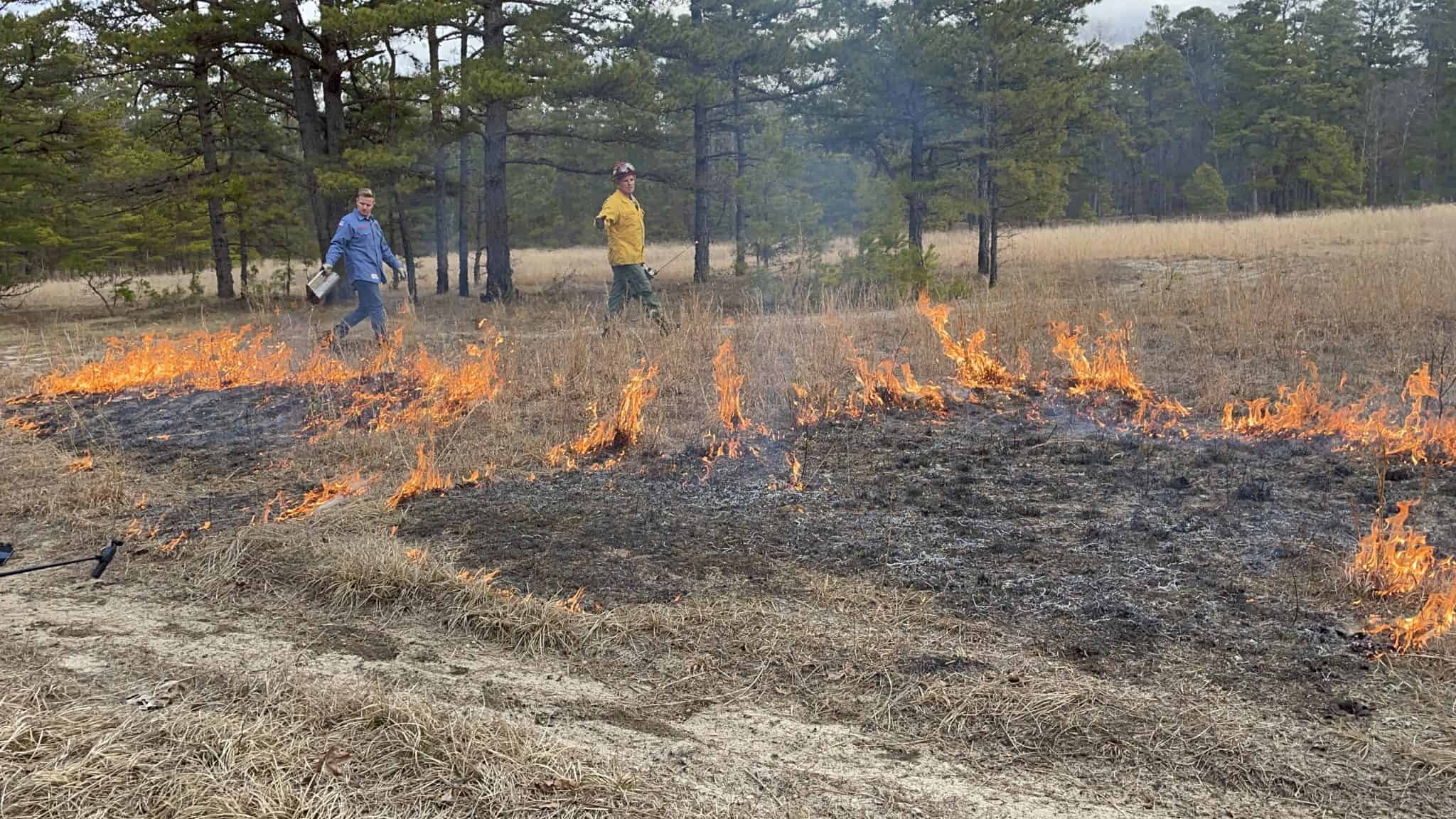Burning to protect nature
In the dense forest and parks of Shamong’s Pinelands National Reserve, wildlife is alive with snakes basking in the sun and birds nesting.
And to ensure a suitable wildlife home, the state Department of Environmental Protection (DEP) is planning strategic prescribed burnings to not only protect the wildlife, but to protect public and residential areas from wildfire risk.
The DEP sets a prescribed burning goal of 25,000 acres from January to March. From 2019 to 2020, state officials hit that goal. During 2021 and 2022, some 17,000 acres were burned.
“New Jersey is ground zero for the worst impacts of climate change, which includes the risk of wildfire,” DEP Commissioner Shawn M. LaTourette said. “This work really serves multiple purposes of preserving our existing stock of carbon, and the natural environment in which that exists, (preserving) the habitat, the animals and rare plant species, and at the same time protecting public health.”
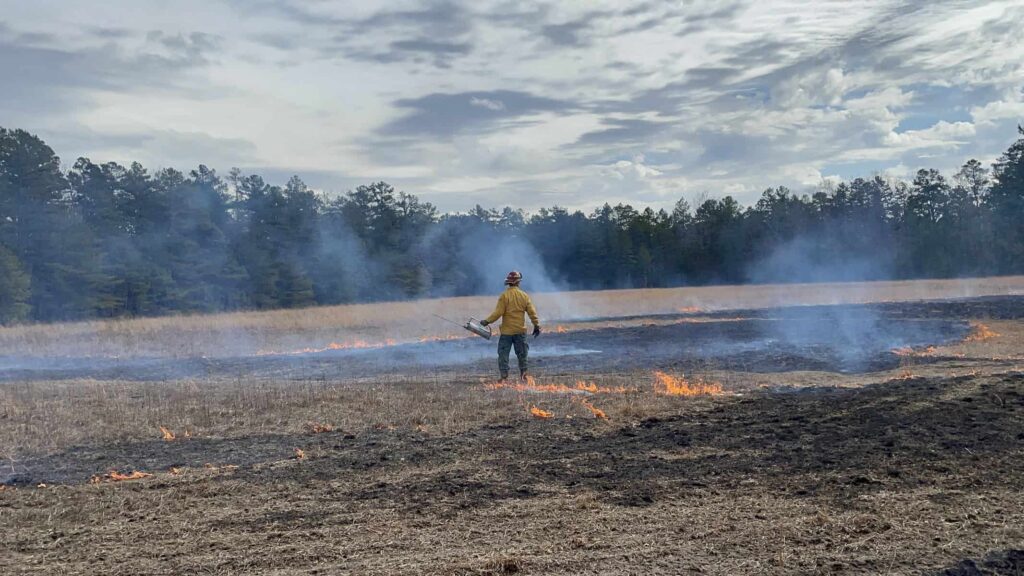
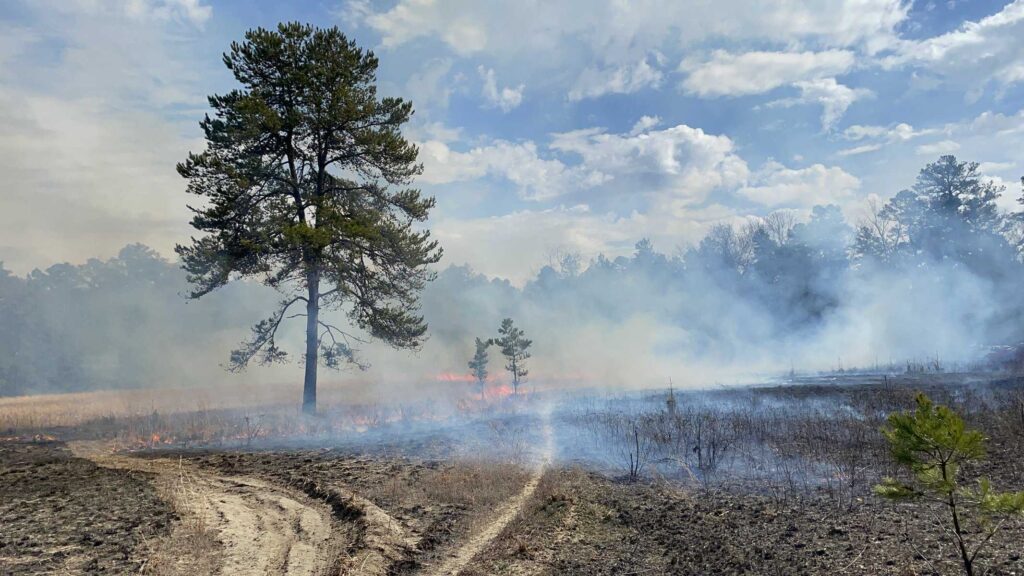
The prescribed burnings help state officials “beat back some of the vegetation that typically would have been disturbed through a more natural process.” A burning can last for days or as little as 20 minutes.
“It helps to open up the forest,” said John Cecil, assistant commissioner of State Parks, Forests and Historic Sites.
New Jersey Forest Fire Service Administrator and Fire Chief Greg McLaughlin said prevention activity starts with the “three Ps”: preparedness, protection and prevention.
“We have been using this tool (of prescribed burns) for over 50 years,” he explained. “It has been proven to be safe, efficient and effective. It allows us to treat large acreage quickly.”
On March 8, the Pole Farm, Reed Bryan Farm and Hunt House regions of Mercer Meadows in Lawrence Township closed to the public for a prescribed burning.
State officials came together for a prescribed burning demonstration on March 1 in Wharton Acres, on the edge of Wharton State Park in Shamong. The area, according to Tom Gerber, New Jersey Forest Fire Service Section Warden, has been a historic wildfire corridor.
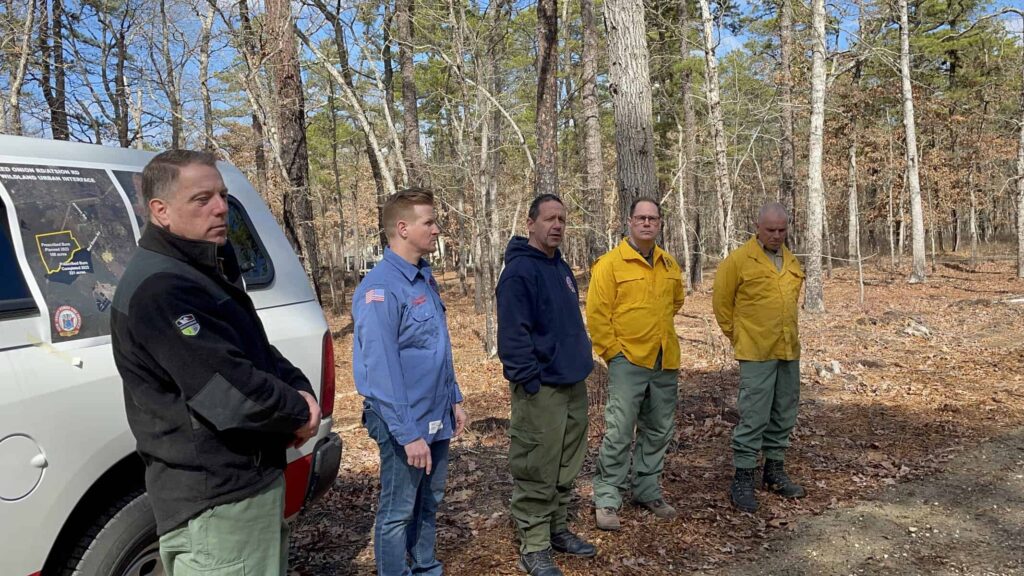
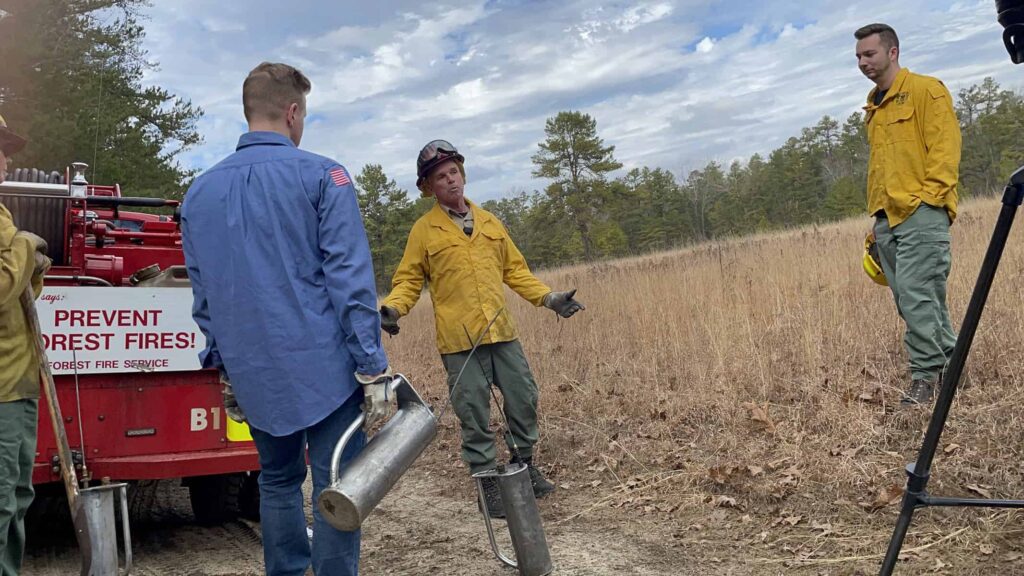
The following is a timeline of that history:
1930: Some 10,000 acres of fire came through the area and did not stop until it got to a field in Tabernacle and Shamong.
1942: The same area burned.
1954: Another 5,000 acres of fire swept through the corridor, virtually undeveloped at the time.
1963-64: The area saw another 10,000-acre fire.
New Jersey’s Pinelands at Wharton State Forest comprises the largest single tract of land in the state park system, according to the DEP. It is also the site of Batsto Village, which is available for self-guided exploration. The village is a former bog iron and glassmaking industrial center that currently reflects the agricultural and commercial enterprises in the area during the late 19th century.
Throughout Wharton are rivers and streams for canoeing, hiking trails (including a major section of the Batona Trail), miles of unpaved roads for mountain biking and horseback riding and numerous lakes, ponds and fields ideal for wildlife observation.
The Pinelands National Reserve – which includes Wharton State Park – consists of approximately 1.1 million acres that represent 22% of the state’s total land area, including parts of Atlantic, Burlington, Camden, Cape May, Cumberland, Gloucester and Ocean counties, and all or parts of 56 municipalities.

